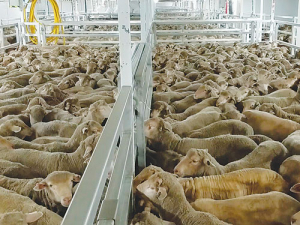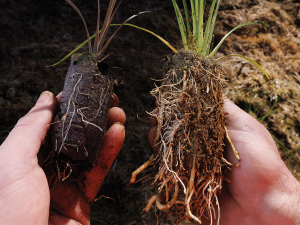The furore erupted when 60 Minutes recently showed 2400 sheep dying on the Awassi Express en route to the Arabian Gulf in August 2017.
The exporters are moving to strengthen animal welfare including -- from this year -- having an independent observer on all ships carrying sheep to the Middle East. Reduced stocking density and more welfare safeguards and indicators will apply to all shipments.
Exporters also support setting up an inspectorate-general for the welfare of exported animals.
Footage from five voyages showed thousands of sheep suffering severe heat stress, caked in feaces and urine, injured and sick animals left to die slowly, decomposed bodies left in pens with living sheep and pregnant ewes giving birth and their lambs dying.
This outraged animal rights groups and prompted the Australian Government to order a review of the A$1.8 billion live sheep export trade.
Sheep farmers and exporters have the support of the National Party, the junior coalition government partner with the Australian Liberal Party.
The Opposition Labour Party says it would move to ban live sheep exports.
Australian Livestock Export Council chairman Simon Crean, a former Labour leader, says exporters “are listening to the community and acting decisively to change the industry”.
Minister for Agriculture David Littleproud says his office will review scientific literature, outcomes of recent voyages and reports from observers.
“The footage I saw... shocked me. The review will consider stocking density on ships, bedding and animal waste management, ventilation and heat stress risk, the use of air conditioners and conditions placed on recent voyages including the independent observer employed by the Department of Agriculture.”
The National Farmers Federation wants live exports to continue but agrees they must meet the animal welfare expectations of farmers and all Australians.
NFF president Fiona Simson says the NFF has so far opposed having an independent office for animal welfare.
“That would simply add another layer of bureaucracy,” she says.
“The NFF [wants] a national approach to animal welfare.”









